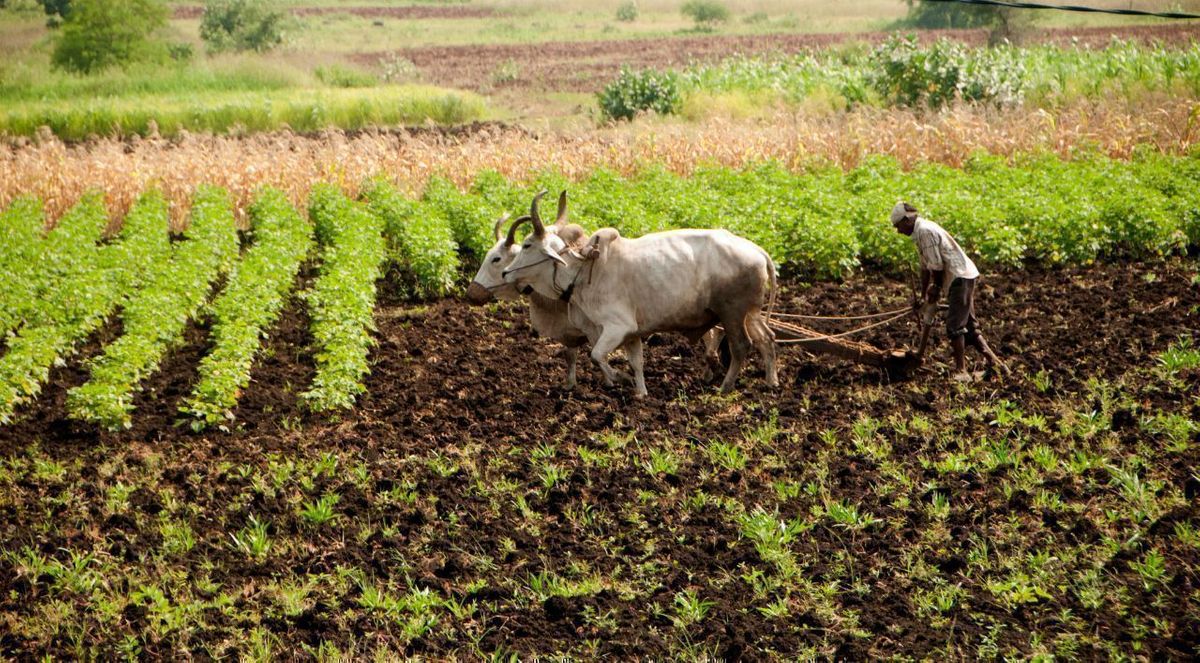The PM-KISAN Yojana (PM-KISAN) Yojana is a landmark initiative by the Government of India aimed at providing financial support to small and marginal farmers. Launched on February 24, 2019, by Prime Minister Narendra Modi, the scheme aims to ensure a steady income stream for farmers, helping them meet their agricultural and household expenses. This article explores the various aspects of the PM-KISAN Yojana, including its objectives, implementation, impact, and challenges.
Objectives of PM-KISAN Yojana

Financial Support for Farmers
The primary objective of the PM-KISAN Yojana is to provide direct financial support to farmers to help them manage their agricultural activities and household needs. Under this scheme, eligible farmers receive ₹6,000 per year, distributed in three equal installments of ₹2,000 each. This financial assistance aims to reduce the financial burden on farmers and enable them to invest in their farms, purchase inputs, and improve productivity.
Ensuring Inclusive Growth
Another key objective of the PM-KISAN Yojana is to promote inclusive growth in the agricultural sector. By targeting small and marginal farmers, the scheme aims to bridge the income gap and ensure that benefits reach those who need them the most. This inclusive approach is intended to uplift the socio-economic status of farmers and contribute to the overall development of rural India.
Reducing Farmers’ Dependence on Loans
The scheme also aims to reduce farmers’ dependence on loans and credit by providing them with a guaranteed income. By receiving regular financial assistance, farmers can better manage their finances and avoid falling into debt traps. This aspect of the PM-KISAN Yojana is particularly crucial in addressing the issue of farmer suicides, which are often linked to financial distress and indebtedness.
Implementation of PM-KISAN Yojana
Eligibility Criteria
The PM-KISAN Yojana targets small and marginal farmers across India. To be eligible for the scheme, a farmer must:
- Own cultivable land as recorded in the state or Union Territory’s land records.
- Be engaged in agricultural activities.
- Meet the definition of a small or marginal farmer, which is defined as owning up to 2 hectares (5 acres) of cultivable land.
Certain categories of beneficiaries are excluded from the scheme, including institutional landholders, farmers who are serving or retired government employees, professionals like doctors and lawyers, and those who pay income tax.
Registration and Verification Process
Farmers who meet the eligibility criteria must register for the scheme to receive benefits. The registration process involves submitting the necessary documents, such as land ownership records, identification proof (Aadhaar card), and bank account details. The data is then verified by the state governments to ensure the authenticity of the beneficiaries.
Disbursement of Funds
Once the verification process is complete, the financial assistance is directly transferred to the beneficiaries’ bank accounts through the Direct Benefit Transfer (DBT) system. The DBT system ensures transparency and efficiency in the disbursement process, reducing the risk of corruption and delays. The installments are typically disbursed in three phases: April-July, August-November, and December-March.
Impact of PM-KISAN Yojana

Financial Relief for Farmers
The PM-KISAN Yojana has provided significant financial relief to millions of farmers across India. By receiving regular financial assistance, farmers can manage their agricultural expenses more effectively, purchase necessary inputs like seeds and fertilizers, and invest in better farming practices. This support helps farmers enhance their productivity and income, contributing to improved livelihoods.
Empowering Women Farmers
The scheme has also had a positive impact on women farmers. In many rural households, women play a crucial role in agricultural activities. By providing direct financial assistance, the PM-KISAN Yojana empowers women farmers to take more control over their finances and make informed decisions about their farms. This empowerment contributes to gender equality and strengthens the socio-economic status of women in rural areas.
Boosting Rural Economy
The PM-KISAN Yojana has had a ripple effect on the rural economy. The financial assistance provided to farmers increases their purchasing power, leading to higher demand for goods and services in rural markets. This boost in demand stimulates local businesses and contributes to the overall economic development of rural areas. Additionally, the scheme helps create a more stable and resilient agricultural sector, which is vital for the Indian economy.
Encouraging Sustainable Agriculture
By providing financial support, the PM-KISAN Yojana encourages farmers to adopt sustainable agricultural practices. With additional funds, farmers can invest in modern farming techniques, diversify their crops, and implement environmentally friendly practices. This shift towards sustainable agriculture is essential for ensuring long-term food security and environmental sustainability.
Challenges and Criticisms
Inclusion and Exclusion Errors
One of the major challenges of the PM-KISAN Yojana is ensuring accurate identification and verification of beneficiaries. Despite efforts to streamline the registration process, there have been instances of inclusion and exclusion errors. Some eligible farmers may be left out due to lack of proper documentation or discrepancies in land records, while ineligible individuals may receive benefits due to administrative lapses.
Awareness and Accessibility
Another challenge is raising awareness about the scheme among farmers, especially in remote and marginalized communities. Many farmers may not be aware of their eligibility or the registration process, leading to lower enrollment rates. Additionally, accessing registration centers and completing the required paperwork can be difficult for farmers living in remote areas.
Administrative Hurdles
The implementation of the PM-KISAN Yojana involves coordination between various government departments at the central and state levels. This coordination can sometimes lead to administrative delays and inefficiencies. Ensuring timely and accurate disbursement of funds requires robust administrative mechanisms and constant monitoring.
Sustainability of Financial Assistance
While the PM-KISAN Yojana provides crucial financial support, it is not a long-term solution to the structural challenges faced by the agricultural sector. The scheme needs to be complemented with other measures, such as improving access to credit, enhancing infrastructure, and providing technical support to farmers. Addressing these structural issues is essential for achieving sustainable agricultural development.
Future Prospects and Recommendations

Strengthening Implementation Mechanisms
To enhance the effectiveness of the PM-KISAN Yojana, it is crucial to strengthen the implementation mechanisms. This includes improving the accuracy of beneficiary identification, streamlining the latoto registration process, and ensuring timely disbursement of funds. Leveraging technology, such as mobile applications and online platforms, can help make the registration and verification process more accessible and efficient.
Enhancing Awareness and Outreach
Increasing awareness about the PM-KISAN Yojana among farmers is essential for maximizing its impact. Government agencies, NGOs, and community organizations should collaborate to conduct awareness campaigns, provide information about the scheme, and assist farmers in the registration process. Special efforts should be made to reach marginalized and remote communities.
Integrating with Other Agricultural Programs
The PM-KISAN Yojana should be integrated with other agricultural programs and initiatives to create a holistic support system for farmers. This includes linking the scheme with programs that provide access to credit, insurance, and technical assistance. By adopting a comprehensive approach, the government can address the multiple challenges faced by farmers and promote sustainable agricultural development.
Monitoring and Evaluation
Regular monitoring and evaluation of the PM-KISAN Yojana are essential for assessing its impact and identifying areas for improvement. This involves collecting and analyzing data on beneficiary outcomes, financial disbursements, and administrative efficiency. Feedback from farmers and stakeholders should be incorporated into the evaluation process to ensure that the scheme meets the needs of its intended beneficiaries.
Conclusion PM-KISAN Yojana
The PM-KISAN Yojana is a transformative initiative that has provided much-needed financial support to millions of small and marginal farmers in India. By ensuring a steady income stream, the scheme helps farmers manage their agricultural activities, reduce their dependence on loans, and improve their livelihoods. While challenges remain in terms of implementation and sustainability, the PM-KISAN Yojana represents a significant step towards achieving inclusive and sustainable agricultural development. With continued efforts to strengthen and expand the scheme, it has the potential to make a lasting positive impact on the lives of Indian farmers and the rural economy.
Read More Article About “Noa Argamani: A Profile of Resilience and Courage”
